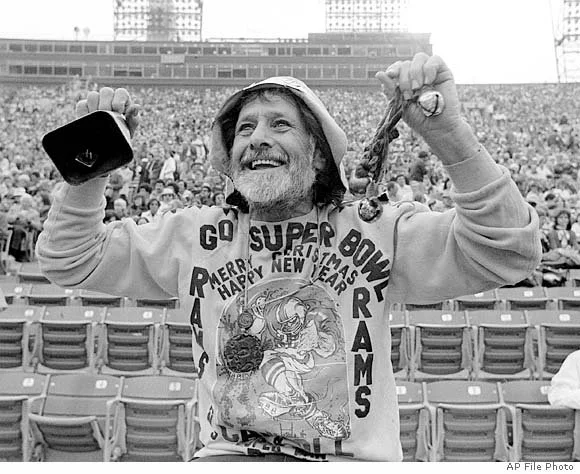THE BAREFOOT PROPHET OF WHOLE FOODS
SAN FRANCISCO, EARLY 1960S — Years before the Summer of Love, a long-haired, bearded man, wearing shorts and sandals, is walking along Market Street. Carrying a large bag of fruits and nuts, he hands out samples to the hustling crowd. He draws only scorn.
“Beatnik!”
“Who does he think he is, Tarzan?”
“He looks like John the Baptist.”
Many a “character” peopled the 1960s, but few were as prophetic as Robert Bootzin, aka, Gypsy Boots. His shaggy appearance branded him just another “kook,” but nothing was as weird as his diet. While the rest of America porked out on burgers and fries, Miracle Whip and Cheez Whiz, Gypsy Boots promoted “natural food.”
Raw fruits and vegetables. Carrot juice. Wheatgrass and alfalfa sprouts. Sometimes Mr. Boots threw all this stuff in a blender to make what he called. . . “a smoothie.” It sounded disgusting — until natural foods became a billion dollar business.
One newspaper called Gypsy Boots “part shaman, part song-and-dance man, part Johnny Appleseed.” He called himself “a walking symbol of freedom.” By either label, Robert Bootzin came to his role, well. . . naturally.
Born in San Francisco in 1915, Bootzin was the son of Russian immigrants. His father sold brooms. His mother, Mushka, raised four children in the traditions of “the old country.” As vegetarians. As naturalists, hiking the city’s hills. “My mother brought me up to be like an uninhibited creature in the woods,” Boots recalled.
WIth his natural enthusiasm, he might have been just another salesman. But at the start of the Depression, Bootzin’s elder brother John, died of TB. Stunned, shaken, Bootzin dropped out of high school “and went out to the school of life experience, guided by Mother Nature.” While working odd jobs, Bootzin took to the wild. He lived in caves, slept beneath trees, in orange groves, in haystacks, on beaches. “It was all a wonderful romance with nature.”
And along his wild path, he ate raw nuts, berries, grains, you know — “health food crap.” In the late 1940s, Bootzin joined a group of “Nature Boys” living in a canyon outside Palm Springs.
“We were a wild-looking bunch,” recalled Boots (upper left above). “Doing deep breathing on the mountaintops, swimming in ice-cold streams, then in a pack entering Palm Springs with baskets of dates and nuts to sell to the vacationers.”
Though nicknamed “Boots” in grade school, he only became Gypsy Boots when the shaman became a showman. During a 1955 appearance on “You Bet Your Life,” Groucho Marx asked his age. “Around 35,” he replied, “but of course I’ve been living 20 years in the caves and the mountains and the beaches and they never caught up with me to send me my birth certificate so I don’t know how old I am.” Then he sang “Figaro,” threw figs to the audience and did a vaudevillian pratfall. Groucho broke up. A star was born.
For the next dozen years, Gypsy Boots was “resident kook” on the talk show circuit. Steve Allen recalled how he “filled the stage with the energy of a dozen men, carrying loads of organic fruits and vegetables, spouting poems with random rhymes and evanescent metre, flying about the stage. . . throwing our theatre into immediate uproar.”
Boots became a regular on Allen’s show. Though he played the kook, Allen said, “I prefer to think of Gypsy as an enthusiast. And I think this tired world needs more enthusiasts.”
In the 1960s, Boots came out of the wild to settle down, start a family, and open one of America’s first health food stores. “Health Hut,” on Beverly Boulevard in Hollywood, sold nothing but fruits, nuts, grains, and “Boots Bars” made of wheat grass, spirolina, and plenty of garlic. America stayed on its cholesterol kick, but a seed was planted. With recipes.
Boots’ 1965 memoir, Bare Feet and Good Things to Eat, featured recipes that didn’t make the cut at Joy of Cooking. Sorrel Salad. Blood Builder Salad with watercress, spinach, parsley and alfalfa. Rhubarb Tonic Drink. Chlorophyll Cocktail. Alfalfa Mint Tea. . .
Weird stuff for those still packin’ down the pork rinds, but in 1966, Erewhon opened its first store in Boston. A few years later came Diet for a Small Planet, then The Moosewood Cookbook, both best-sellers. The first Bread and Circus (later Whole Foods) opened in 1975. And natural food sales skyrocketed.
And Gypsy Boots? Calling himself an “Ageless Athlete,” he demonstrated the benefits of all that crap in feats that would have taxed a young Big Mac addict. On his fiftieth birthday, he ran ten miles, barefoot, in 120-degree desert heat. A huge football fan, even into his eighties he could throw a football forty yards. He sold natural foods to Hollywood stars and turned up everywhere in L.A., reciting, leaping, being free. He became a regular at sports events, carrying signs reading “Don’t panic, go organic.”
“I may get older but I’m not going to grow up,” he often said. Age only caught up with this nature boy in 2004 when he died, at 89. By then, natural food sales in the U.S. topped $10 billion a year. And wheatgrass was no laughing matter.
Gypsy Boots is mostly forgotten, but his legacy lies not just in how millions eat. He also graces a song by a friend who, while living in the Palm Springs canyon, wrote a hit for Nat King Cole, “Nature Boy.”
There was a boy
A very strange, enchanted boy
They say he wandered very far
Very far over land and sea
A little shy and sad of eye
But very wise was he.
Arid then one day
A magic day, he passed my way
And while we spoke of many things
Fools and kings, this he said to me:
The greatest thing you'll ever learn
is just to love and be loved in return.











